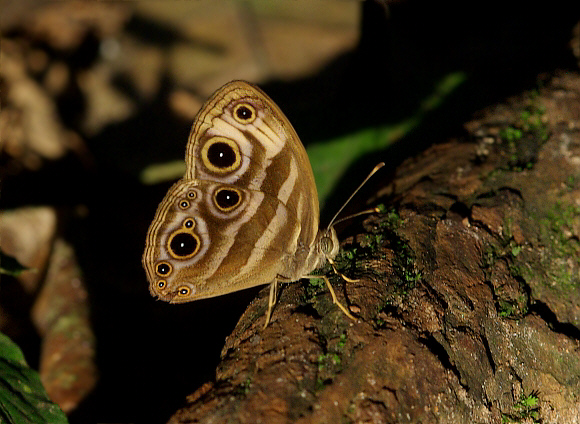
Introduction
Bicyclus is the most numerous of the Satyrine genera in Africa, comprising of about 85 species, 50 of which occur in West Africa. The butterflies are collectively known as Bush Browns, and can be thought of as the sister genus to the Asian Mycalesis.
Bicyclus are characterised by having a regular series of submarginal ocelli on the hindwings, and a pair of ocelli on the forewings, of which the lower ocellus is always the largest. In most species the ocelli are very prominent, but in a few species such as sweadneri they are vestigial, especially in the dry season morph. Most species have very rounded wings, but again there are a few exceptions such as zinebi which has a squarish apex on its forewings, and sambulos which has a stumpy “tail” on the hindwings.
Bicyclus maesseni is found from Cote d’Ivoire to Togo. In the Volta region of Ghana it is sympatric with ignobilis, which has different apical markings, and lacks the small conjoined spot in space 3 on the hindwing.
Habitats
This species is found in closed canopy primary and secondary forest, usually on hillsides.
Lifecycle
The larval foodplants are grasses, of which many species are probably used.
Adult behaviour
The butterflies are found in sunspots where dappled sunlight filters through the canopy to ground level.
